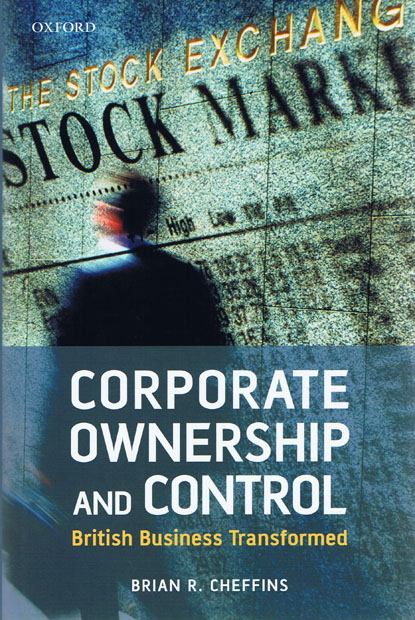
The separation of the ownership from control of a company is a hallmark of many large UK companies, and has been so for nearly a century. Much contemporary debate over corporate governance asssumes that this separation is the norm. However, quoted companies are much less common outside the UK and quoted companies in other jurisdictions often have one dominant shareholder, rather than being widely held.
In this book, Brian Cheffins explores the historical foundations of the separation of ownership and control, asking how the widely held company came to prominence and why it has endured in the UK. He synthesizes existing theories on the evolution of ownership and control in the UK and assesses the extent to which they need to be revised in the light of new historical evidence. He provides the first systematic analysis of why and how the UK stock market came to be dominated by institutional shareholders and illustrates the development of key similarities and differences between the UK and US systems through comparative discussions.
Being a blockholder in a large and successful business can provide the private benefits of control and the power associated with being a business leader, so why did those who traditionally owned large blocks of shares want to exit? Leaving one's savings in the hands of managers over whom one has no control seems foolish. Why were investors willing to buy the shares that the blockholders wanted to sell as ownership separated from control, and why have they continued to buy?
As ownership separated from control in UK public companies, those who bought shares (including institutional shareholders, who had sufficient fiscal power to take a hands-on role with public companies) rarely sought to exercise control over management. Why was this? Even though the widely held company has been a key part of British capitalism for nearly a century, a series of prominent public-to-private deals carried out by private equity buyers mean that this trend may not necessarily continue. The concluding chapter of this book draws on the analytical framework used throughout to assess the possible future of the widely held company in the UK.